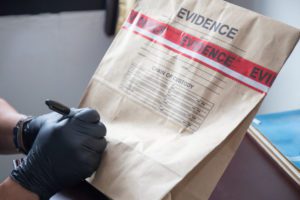 On June 2, 2022, the New Jersey Supreme Court decided the Camden County case of State v. Bradley C. Thompson. The principal issue under N.J.S.A. 2C:1-6 concerned whether the statute of limitations for DNA cases barred defendant’s prosecution.
On June 2, 2022, the New Jersey Supreme Court decided the Camden County case of State v. Bradley C. Thompson. The principal issue under N.J.S.A. 2C:1-6 concerned whether the statute of limitations for DNA cases barred defendant’s prosecution.
Justice Pierre-Louis, my Rutgers Law School classmate, wrote for a unanimous Court in relevant part: Applying the customary principles of statutory construction, we hold that a plain reading of N.J.S.A. 2C:1-6(c) requires the statute of limitations in cases involving DNA evidence to begin when the State possesses the physical evidence from the crime as well as the DNA sample from the defendant, not when a match is confirmed.
As noted, N.J.S.A. 2C:1-6(c) is an exception to the general rule found in N.J.S.A. 2C:1-6(b)(1) that a prosecution “must be commenced within five years after [the crime] is committed.” The exception in N.J.S.A. 2C:1-6(c) provides that “time does not start to run until the State is in possession of both the physical evidence and the DNA or fingerprint evidence necessary to establish the identification of the actor by means of comparison to the physical evidence.”
A plain reading of the statute reveals that the statute of limitations, in cases involving DNA evidence, begins to run when “the State is in possession of” two things: (1) the physical evidence from the crime and (2) the DNA of the suspect. Those are the two items “necessary to establish the identification of the actor by means of comparison of the physical evidence.” N.J.S.A. 2C:2C:1-6(c). Stated differently, once the State is in possession of the two pieces of information, those two DNA samples can be compared to determine whether the suspect’s DNA matches the DNA evidence recovered from the crime scene.
This seems like a straightforward case of statutory interpretation. Given the underlying violent crime and what appears to have been a significant error by law enforcement in inexcusably delaying their DNA testing procedures, it is no wonder that the prosecution appealed all the way to the Supreme Court to make up for their mistakes. Hopefully, the victim can sue those responsible for their errors and they are not immune from civil liability.
